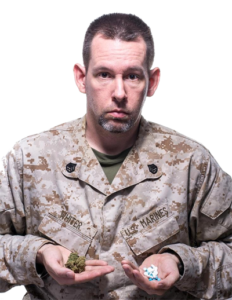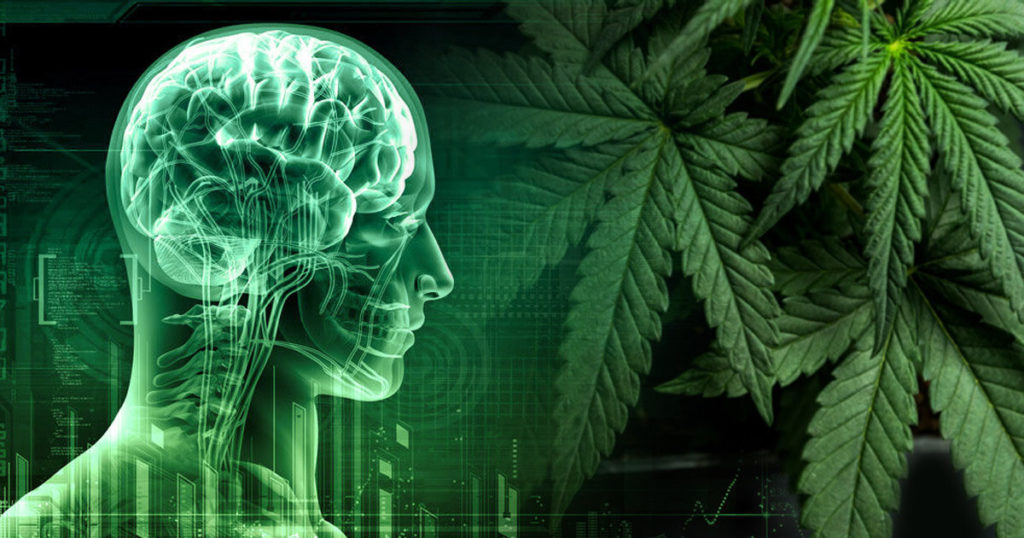
Anxiety disorders are the most common mental illness in the United States, affecting some 40 million American adults every year, according to the Anxiety and Depression Association of America. On a global scale, anxiety also ranks atop the list of mental health disorders as an estimated 284 million people suffered from some form of it in 2017.
The medications most often prescribed to “treat” illnesses like Panic Disorder, General Anxiety, Obsessive-Compulsive Disorder, and Post Traumatic Stress Disorder come with fine print warnings of side effects like dry mouth, drowsiness during the day and insomnia at night, constipation, sexual dysfunction, dizziness, hypertension, heightened blood pressure, and so many other disturbing risks.
Studies continue to reveal that anxiety medications and antidepressants – particularly those that feature SSRIs (Selective Serotonin Reuptake Inhibitors) – can not only prove to be completely ineffective at addressing (or healing!) the root cause of one’s anxiety and/or depression, but, in fact, can raise agitation and anxiety levels drastically, and these drugs are all too often associated with increased risk of suicide.
Additionally, patients are often overprescribed conflicting medications from varying doctors that, once combined, can form extremely dangerous or even deadly concoctions. This is what our health care system is giving to the most vulnerable among us – from our ailing kids to our traumatized military veterans.

(Photo: Mike Whiter)
THERE’S GOT TO BE A BETTER WAY
When I first started smoking weed as a teenager, my friends and I would drive around looking for “sesh spots” where we could safely park our car and blaze some brick weed while blasting The Beatles, or where we could hike from the car to some secluded spot to partake in the pot. I will never forget one day, riding home from the mall, taking the scenic route through the hills, when we spotted a grove of orange trees.

An hour later we were sitting in a bed of orange blossoms, stoned to our stems, when we decided it was time to leave. One look around, though, froze us in our tracks as every single tree, row after row, suddenly seemed to be interwoven with a massive spider web linking it to the next. In the middle of each of these webs appeared a massive spider, poised to strike at any moment. How much of that was real, and how much of it was our young overanxious minds is anyone’s guess, but we army crawled out of there, nevertheless.
That wasn’t my last bout with cannabis-fueled anxiety or paranoia, but I feel that I have outgrown it and, in hindsight, it seems that my set and setting probably contributed to my mental reaction in those situations much more than the marijuana did.
Yes, new cannabis consumers are highly likely to face their own degree of anxiety after a few tokes until their tolerance builds, but it will, and most regular cannabis consumers that I know use weed to raise their spirits and lower their anxiety. Why is that?
A new study just published in the scientific journal Neuron has found a demonstrable method of manipulating certain molecules naturally present in the human body (dully named 2-AG) in a manner that could allow them to ‘roadblock’ the neural highway along which a potential anxiety attack would travel to fruition. These 2-AG molecules interact with receptors in the human brain that we refer to as the endocannabinoid system (ECS), that essential network found within all of us that your family doctor has probably never heard of.

Among so many other amazing things, our endocannabinoid system plays a crucial role in moderating our anxiety levels, and like any other part of our body, the health and effectiveness of our ECS can deteriorate.
In fact, the results from this most recent study reveal that as test subjects were introduced to stressful or traumatic situations, both the 2-AG levels and the ECS itself began to break down, as the delicate pathways between the amygdala and the pre-frontal cortex begin to fuse together in dangerous ways. This process can be accelerated by prescription anti-anxiety meds which can fan the flames of depression.
If only nature provided a plant that grows like a weed and is chock full of hundreds of ECS-conducive cannabinoids…
The researchers behind this study recognize that cannabis use can, in fact, contribute to a healthier endocannabinoid system, but they instead plan to focus their efforts on how to synthetically boost 2-AG, citing their desire to provide a medical solution that avoids what they consider to be detrimental side effects of medical marijuana use.
“The hope would be that this would allow one to experience some of the beneficial effects people use medical cannabis for, in terms of anxiety and stress-relief, without some of the side effects,” says Sachin Patel, co-author of the study published recently in Neuron and researcher at Vanderbilt University Medical Center.
Patel hypothesizes that a collapse of the ECS could be at the root of full-blown anxiety disorders. How many suicides are a result of such a collapse?
He and his team’s work so far has literally been conducted on stressed-out mice running a maze in a lab, and he anticipates that it may be another 3-4 years before we see relevant studies in this niche performed on people. Except… we already are. As far back as 2009, studies have been showing that medical marijuana patients anecdotally turn to the plant for help with anxiety and depression. With all due respect to the medical community at large, 99% of you didn’t know what the ECS even was 10 years ago, and way too many of you still don’t acknowledge it. Sometimes, the patient knows what’s best for themselves and people have been self-medicating with marijuana for millennia.
So, is cannabis a surefire cure for anxiety?
Of course not. Not for everyone… but if it can help ANYONE, doesn’t our society have a moral obligation to make that help readily available?
The fact of the matter is that anxiety can strike anyone at any time but its depth and severity can be mitigated, it appears, by a healthy endocannabinoid system. That’s dope!
You can find countless websites warning about the dangers of SSRIs and their deadly connection to suicides and mass shootings, but you won’t find any reputable evidence of those horrific statistics surrounding cannabis use. That’s just not how it works in the cases where it doesn’t work.
As more studies hone in on the web of receptors that form our endocannabinoid system, we are almost sure to see some landmark revelations about mental health and we may finally be able to provide effective solutions to those suffering. Every time that the cannabis plant is found to be at the root of those solutions, however, expect some scientist to try to single out and simulate what they perceive to be the “cure”, failing to appreciate the full spectrum of healing that the plant provides.
If you or someone you know may be contemplating suicide, call the National Suicide Prevention Lifeline at 1-800-273-8255 or text HOME to 741741 to reach the Crisis Text Line.
Veterans who are in crisis or having thoughts of suicide, and those who know a Veteran in crisis, can call the Veterans Crisis Line for confidential support 24 hours a day, seven days a week, 365 days a year. Call 800-273-8255 and press 1, chat online at VeteransCrisisLine.net/Chat, or text to 838255
In emergencies, please call 911, or seek care from a local hospital or mental health provider.

















